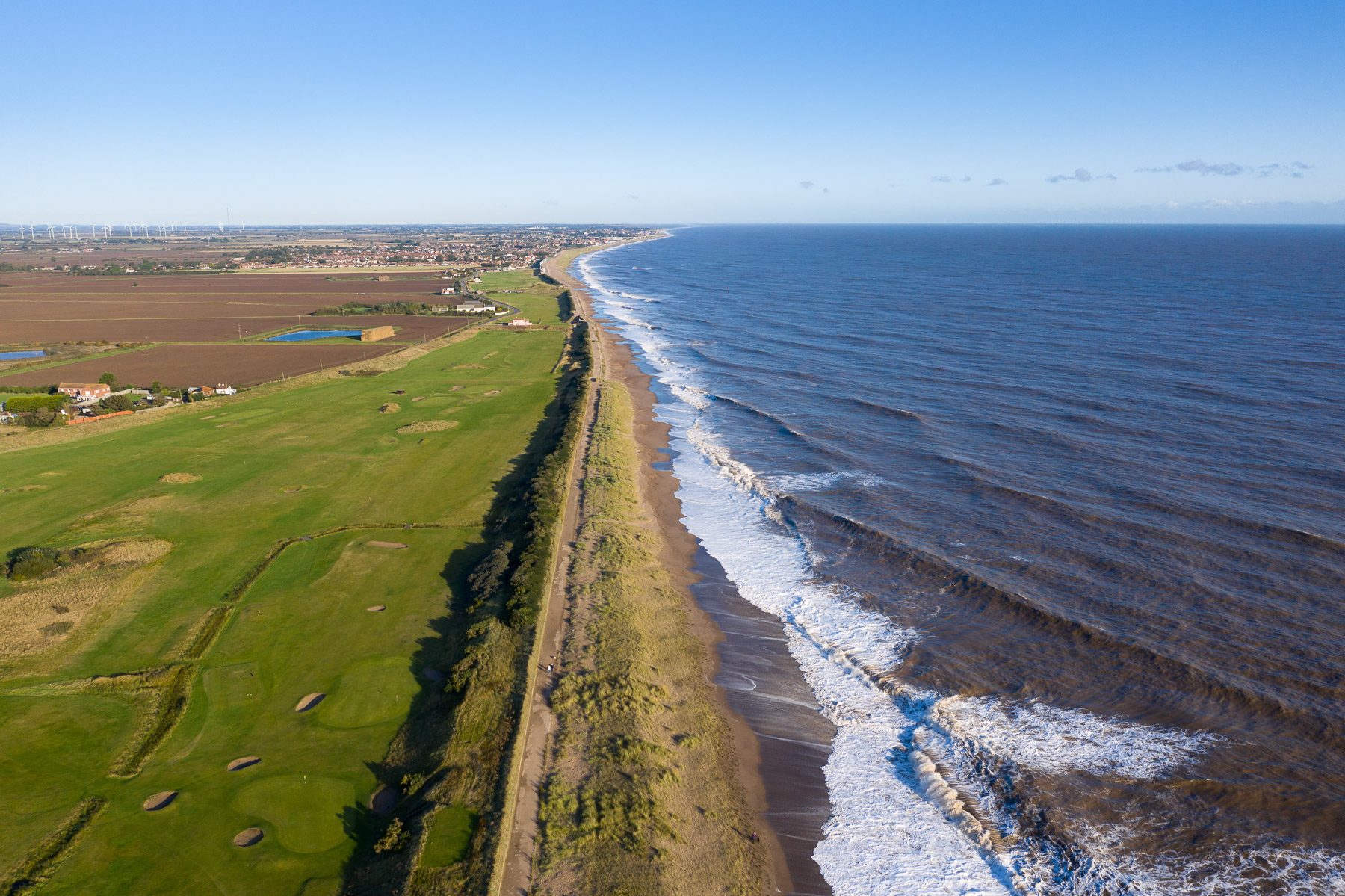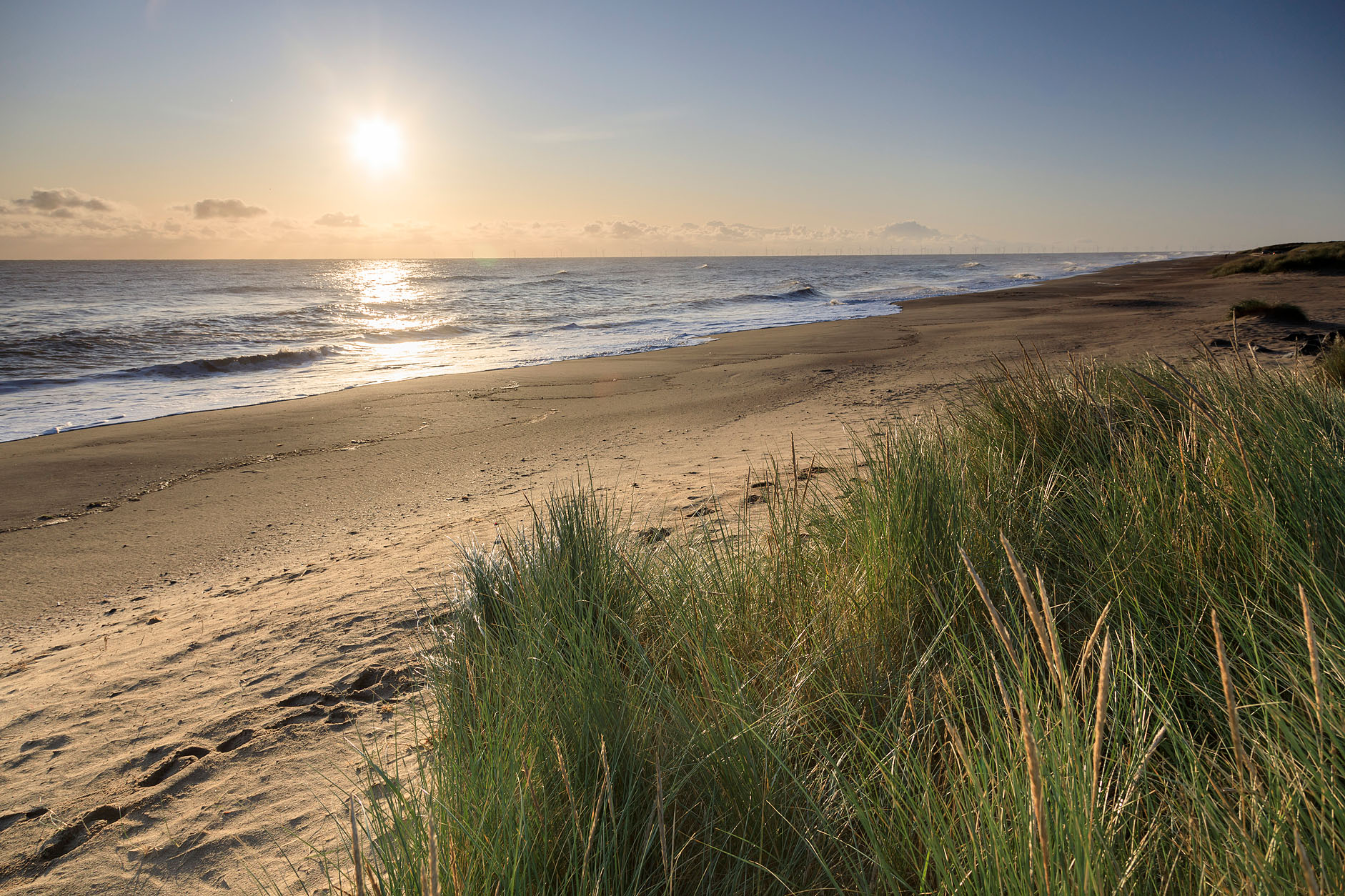The National Trust has acquired a former Lincolnshire golf course, including 2km of coastal land, to help create a new 30 hectare, (74 acre), coastal nature reserve.
Working in partnership with Lincolnshire County Council, Lincolnshire Wildlife Trust, East Lindsey District Council and the Environment Agency the reserve will form part of the Lincolnshire Coastal Countryside Park, to help protect wildlife.

Photo: John Miller and National Trust Images
Purchased for £800,000, it is the first coastal acquisition by the conservation charity since it secured 1.35km of the White Cliffs of Dover coastline in 2012. It has been made possible thanks to a generous donation from a supporter together with funds from the Trust’s Neptune Coastline Campaign, which supports coastline projects.
The former 30 hectare (74 acre) Sandilands golf course will be transformed by restoring sand dune and wetland habitats to make a haven for a variety of wildlife, especially uncommon migratory birds such as black-tailed godwit, spotted redshank and spoonbill along with breeding birds like snipe, lapwing and oystercatcher.
Photos: Robert Morris, John Miller, Dougie Holden and National Trust Images
Work on the transformation will start once the coronavirus pandemic has passed, and the current Government restrictions are lifted.
The new reserve will complement the Lincolnshire Coastal Country Park, a 3,500 hectare (8,650 acre) area of coastline extending from Chapel Point in the south to Sandilands in the north, with coastal habitats including stunning sandy beaches, sand dunes and a series of grazing marshes and reedbeds that are important for wildlife.
Louise Ransberry, Assistant Director of Operations for the National Trust in the East Midlands, said: “The vision for the future of the new reserve is to provide a space where everyone can enjoy the benefits of nature.
“The Lincolnshire coast is one of the most important stretches of English coastline for wildlife, especially as it’s on the east coast ‘flyway’ migration route for birds.

Photo: John Miller and National Trust Images
“Once we are able to welcome visitors, they will be able to enjoy the colours of yellow flag iris and purple loosestrife while hearing the calls of squadrons of avocet; and, in winter, people will be able to admire the grace of a whooper swans’ flight as they arrive from their summer breeding grounds in the sub-arctic.”
After current restrictions on movement are lifted the Trust will carry out detailed surveys of the land to begin restoration of the sand dunes, dune pools and wetland. It will also start work on converting the building into a visitor centre and café.
For more on the beautiful Lincolnshire Natural Coast, visit www.lincsnaturalcoast.com

Recent Comments